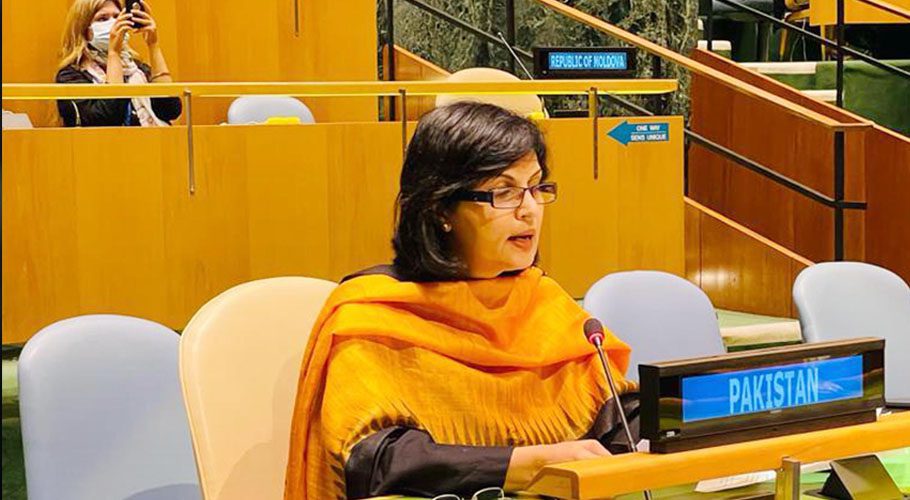NEW YORK: Pakistan told a UN panel that its health response was central to the deadly coronavirus pandemic with prioritised support to the vulnerable.
Special Assistant to the Prime Minister on Poverty Alleviation and Social Protection, Dr Sania Nishtar, was addressing an event sponsored by Pakistan, Finland, Costa Rica, World Bank, and UN Department of Social Affairs (DESA).
The event was part of the high-level political forum on sustainable development (HLPF), which opened its 2021 session on Tuesday. The forum under the auspices of the UN Economic and Social Council (ECOSOC) will review progress in implementing the 2030 Agenda for Sustainable Development.
“Investing in social protection is both a response to current needs as well as preparedness for and insurance against future crises,” said the special assistant.
In her keynote address, Dr Nishtar shared lessons learned from dealing with the pandemic, data innovation and delivery systems are crucial to addressing long-standing fault lines.
“Today’s Pakistan’s transformative reform hinges on these attributes,” she said, adding that gaps in financial and digital literacy must be addressed to bridge the digital divide, building financial inclusion into the overall design of expanded social protection.
Dr Nishtar stressed the need for protecting human capital from the negative coping strategies are inevitable as a result of the pandemic and Pakistan is amongst the first few countries that acted concretely. “We placed nutrition and financial access to education at the heart of social protection objectives,” she added
Despite that COVID-19 disruptions, “We are on track to upscale a new nationwide health and nutritional conditional cash transfer program and have already upscaled our education conditional cash transfer program, nationally” Both programmes, she said, were heavily skewed in favour of girls who get a higher stipend amount.
To hedge against food price inflation, the special assistant said, “We took a policy decision to target commodity subsidies to benefit the poor and have provided universal social protection and universal health coverage for the transgenders and the eligible differently abled.”
Partnerships are being forged to address a range of concerns, she said, adding that the pandemic has unearthed opportunities for countries to take constructive steps.
“And even in the midst of the pandemic, we fast track work on the digital social registry in view of its importance in the 21st century welfare state”, she said, adding that more that needs to be done.
“We believe the pandemic has unearthed an opportunity to recast the role of a welfare state which needs to be a major part of re-commitment to the agenda 2030,” Dr.Nishtar said. “Each country will have its own way of taking forward this but the essential building blocks are the same.”
“We believe that the social protection of today is the human capital, the resilience and the economic inclusion of tomorrow,” she added.



































